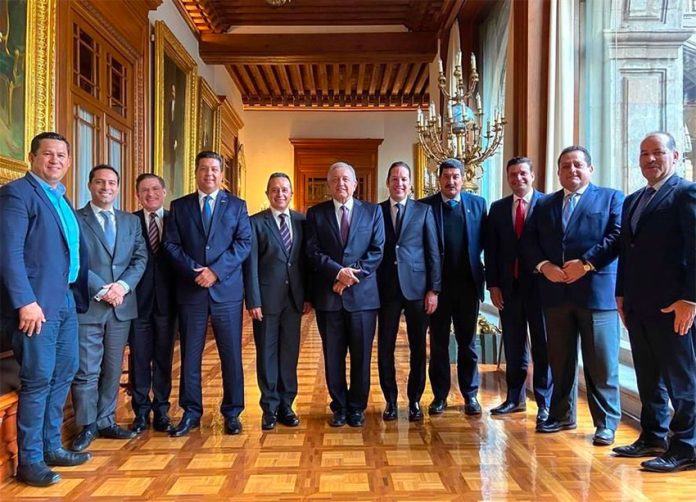Nine states that continue to hold out against inclusion in the federal government’s new universal healthcare scheme will have to provide their own programs and they will be in competition with the federal service, President López Obrador said on Wednesday.
Speaking at his regular news conference, López Obrador said that it will be up to citizens to decide who provides the better service.
“Competition is good, it’s part of democracy. We shouldn’t be alarmed by it,” he said.
The president’s remarks came after Health Undersecretary Hugo López-Gatell announced on Tuesday that Aguascalientes, Baja California Sur, Chihuahua, Coahuila, Guanajuato, Jalisco, Michoacán, Nuevo León and Tamaulipas have not agreed to allow the National Institute of Health for Well-Being (Insabi) to provide healthcare services to people with no other insurance.
Tasked with providing free medical care to millions of Mexicans who previously qualified for the disbanded Seguro Popular scheme, the new department started operations on January 1 but was plagued with confusion during its first month of operation. Both patients and medical personnel have expressed uncertainty about how the program actually works.
López-Gatell said that five of the states that haven’t signed on to the Insabi scheme – Aguascalientes, Baja California Sur, Guanajuato, Jalisco and Nuevo León – don’t have any hospitals run by IMSS Bienestar, a Mexican Social Security Institute service that provides primary and secondary healthcare services to people who live in rural areas and low-income urban neighborhoods.
As a result, the federal government will have no way of guaranteeing free medical care and medicines to the residents of those states.
“. . .There will be no federal government participation. They [the five states without IMSS Bienestar] will have to provide [medical] services and medicines to their residents,” López-Gatell said.
Later Tuesday, López Obrador met with Mexico’s nine National Action Party (PAN) governors, among them five who have not agreed to the operation of Insabi.
However, the president was unable to convince the dissenters to sign on to the scheme over lunch even though the governors had reached a preliminary agreement with Health Secretary Jorge Alcocer last Friday that was expected to be ratified at the meal.
“It was a good meeting, a respectful one, but also very frank,” López Obrador told reporters Wednesday morning.
“They suggested that there could be partial agreements. We maintain that this would lead to there being no responsible authority. In other words, it wouldn’t be known who is doing their duties and who isn’t – half measures aren’t good,” he said.
Aguascalientes Governor Martín Orozco, who is also the current president of the PAN governors association, told reporters after Tuesday’s meeting that the state leaders who have not signed on to the Insabi scheme were now awaiting a “counterproposal” from the federal government
“We’ll have to see the details. . .they present to us,” he said, adding that he expected that to happen in coming days.
Orozco said that the main sticking point precluding agreement between the federal government and the states was that the latter want services provided by Insabi to become free for qualifying patients over time rather than straight away.
Insabi currently guarantees free care at primary and secondary public healthcare facilities, but not at specialist, tertiary hospitals. However, Undersecretary López-Gatell said Tuesday that all of Mexico’s 23 national health institutes, which provide specialist medical services, have committed to offering free care to Insabi patients from December 1.
Another disagreement between the governors and López Obrador was over how federal funding will be allocated to the states, whether they have consented to Insabi or not.
The president said this morning that states that haven’t signed on to the federal universal healthcare scheme won’t be financially penalized, adding that he instructed Insabi on Tuesday to release funds to them.
Source: El Universal (sp), Reforma (sp)
